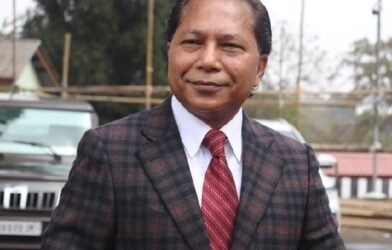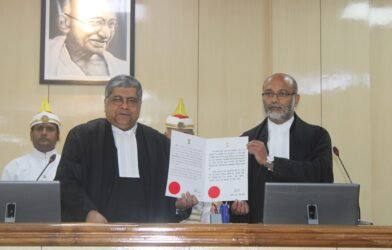Subtotal $0.00
Shillong, June 12: A delegation of traditional chiefs today met Chief Minister Mukul Sangma and submitted a memorandum urging the Meghalaya government to take necessary steps to ensure that traditional way of life and cattle markets within the “Khasi states” and the whole Meghalaya are not closed by virtue of “back door” application of Central legislation.
The delegation was led by Syiem of Khyrim, Dr Balajied S. Syiem and Grand Council of Chiefs of Meghalaya and spokesperson of the Federation of Khasi States, John F. Kharshiing.
The delegation said, “the Central acts and rules – Prevention of Cruelty to Animals (Regulation of Livestock Markets) Rules, 2017 directly impact, and infringed on our basic beliefs, rights and violate our Human Rights of the Schedule Tribes and would affect thousands of people depending their livelihood on such animal husbandry and veterinary activities.”
The delegation said that traditional markets under the Syiem, Lyngdoh, Sirdar, Dolloi, Nokma, in Meghalaya include Smit, Mawhati, Iewrynghep, Lyngkyrdem, Pynursla, Tyrso, Mawlasnai, Mawryngkneng, Sohryngkham, Bhoirymbong, Tyrsad, Maroit, Nongum, Mairang, Nongstoin, Rambrai, Mawkyrwat, Umden, Sohra, Sohiong, Iewduh, Iew Masi (Raid Marwet), Umdohlun, Markasa, Umsning, Nongpoh, and Partharkhmah, Jowai/Iawmusiang, Iaw Pynsing, Shangpung, Waiajer, Sutnga, Rymbai, Muktapur, Borkhat, Nongjri, Shella, Balat, Mawsynram, Mawdon and others.
“Many traditional markets will be severely affected if such rules and regulations are forcefully imposed, not to speak of the economic hardship that will be faced by the people of the State,” they said.
The Chief Minister, informed the delegation that an official resolution was passed in the State Assembly and stated that the federal structure of India must be maintained at all cost before it is too late.
Meanwhile, traditional chiefs of the Khasi States urged the Central government through the State government to implement the conditional Annexed Agreement of 17th August 1948, signed and accepted between the Government of India and the Federation of Khasi States, so as to resolve the constitutional anomaly that exist within the First Schedule of the Constitution of India.
According to the traditional chiefs, the Annexed Agreement of 17th August 1948, clearly stated, “The Federation of Khasi States, referred to as “the Federation” agrees that all existing administrative arrangements between the Dominion of India and the then Province of Assam on the one hand, and the Khasi States on the other hand, shall, with exceptions, continue in force until new or modified arrangements have been arrived at between the respective authorities concerned.”
“Unfortunately, till date, no efforts have been made by the Central government to arrive at new or modified arrangements with the Federation of Khasi States, relating to Constitution of India or with regards to the First, Sixth and Seven Schedules,” the memorandum said.
It also stated that numerous serious Constitutional overlapping jurisdiction and overlapping conflicts between the District Council; State Legislation; Central Legislation, vis-a-vis the customary laws and in total violation of the treaty Instrument of Accession and Annexed Agreement 17th August 1948, has a direct bearing and question on the powers of the Sixth Schedule.
The traditional chiefs in the memorandum urged the State government to introduce effective state legislation/resolution and protective mechanisms so as to exempt Meghalaya from the onslaught of Central acts and rules by the majority against the minorities, and ensure that rights of indigenous tribal people and their culture and way of life is allowed to continue without any forceful attempt to impose other alien beliefs and practices on the Khasi, Jaintia and Garo people.









